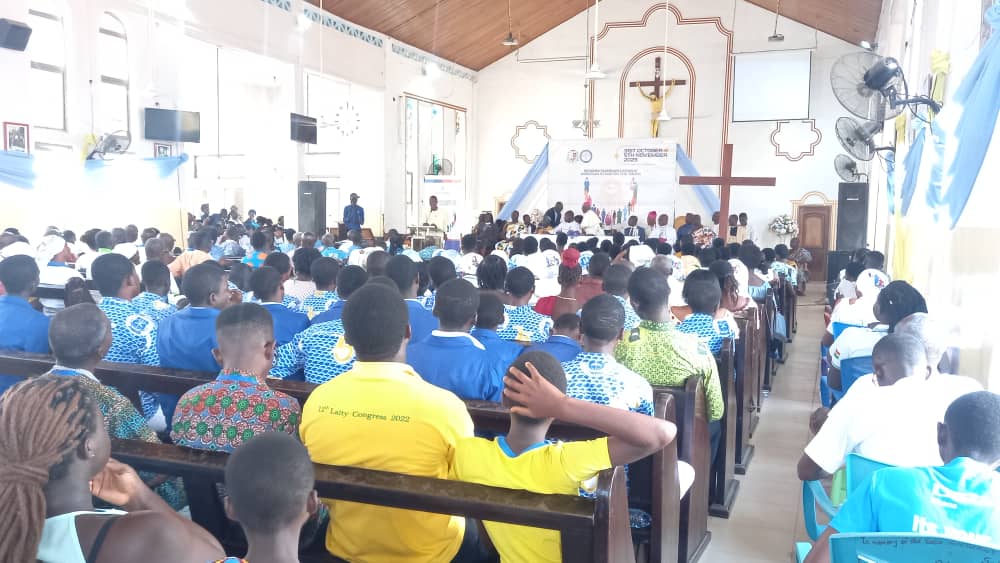By Emmanuel Gamson
Kwesimintsim (W/R), Nov. 2, GNA – Reverend Father Dr Emmanuel Abbey-Quaye, Formator at the St Peter’s Regional Seminary, Pedu in Cape Coast, has called on the leadership of the Catholic Church and state authorities to forge deeper collaborations to help improve the welfare of the youth in the country.
He said young people made up the greater proportion of both the church and state’s population, hence, it was necessary for the two to come together and adopt measures to make their lives better.
He said this in the keynote address at the opening of the Sekondi-Takoradi Catholic Diocesan Synod on the Youth, at the St Anthony of Padua Parish, Kwesimintsim.
The six-day maiden synod is on the theme: “Building a Synodal Church: The Role of the Catholic Youth”.
The synod created a platform for stakeholders to deliberate on how the Diocese could better address challenges facing the youth in building the church.
Rev Fr Dr Abbey-Quaye, speaking on some of the challenges that hindered the youth from building a synodal church, said the high rate of unemployment and poverty had a negative impact on the youth who embarked on adult life with very little preparation, enthusiasm, and confidence and subsequently, looked to the future with a sense of hopelessness.
He said: “Politically, our youth continue to suffer the brunt of the bitter fruits of failed leadership and political confusion in Ghana. They are used and dumped by politicians and parties for their selfish agenda and even violence while their welfare continues to be relegated to the background.”
He noted: “We should make every effort to involve young people directly in the life of society and of the Church so that they do not fall prey to feelings of frustration and rejection in the face of their inability to shape their own future.”
Rev Fr Dr Abbey-Quaye asked the Church not to shirk its task of educating and shaping the youth according to the teachings of Christ.
According to him, since the Church could not adequately cater for all the educational and formational needs of the youth, it was imperative for the Church to collaborate with the governments to build responsible and productive youth for the country.

“As a Church, we acknowledge that we do not have the technical solutions neither do we claim the right to interfere in any way in state politics, however, we do have a mission to accomplish, namely, to seek the integral development of all people., including the youth,” Rev Fr Dr Abbey-Quaye added.
In terms of faith formation, he admitted that many of the youth did not fully understand the Church’s teachings, particularly on marriage and family life, contraceptives, and social doctrines, among others.
“For this and other reasons, some abandon the Church to seek answers from other religious sects, denominations, prayer camps and shrines while others leave the Church altogether.
“These challenges among others are issues that must engage the attention of the leadership of the Church not only here in this Diocese but also in the whole country, especially as we work to build a synodal Church and strive to empower our youth for their role in this task”, he noted.
Rev Fr Dr Abbey-Quaye, however, advised the youth to always engage in meaningful activities that were necessary to build the church.
He asked them to always commit themselves willingly to volunteerism while playing active roles in various capacities in the church.
The Most Rev John Baptist Attakruh, Bishop of the Catholic Diocese of Sekondi-Takoradi, expressed worry over the dwindling number of the youth in the church, due to social media, wealth, miracles and school among others, and said the synod was instituted as part of efforts to avert the situation.
The opening event was attended by priests in the various parishes, parishioners, representatives from sister churches and religious bodies, traditional leaders and youth groups among others.
GNA